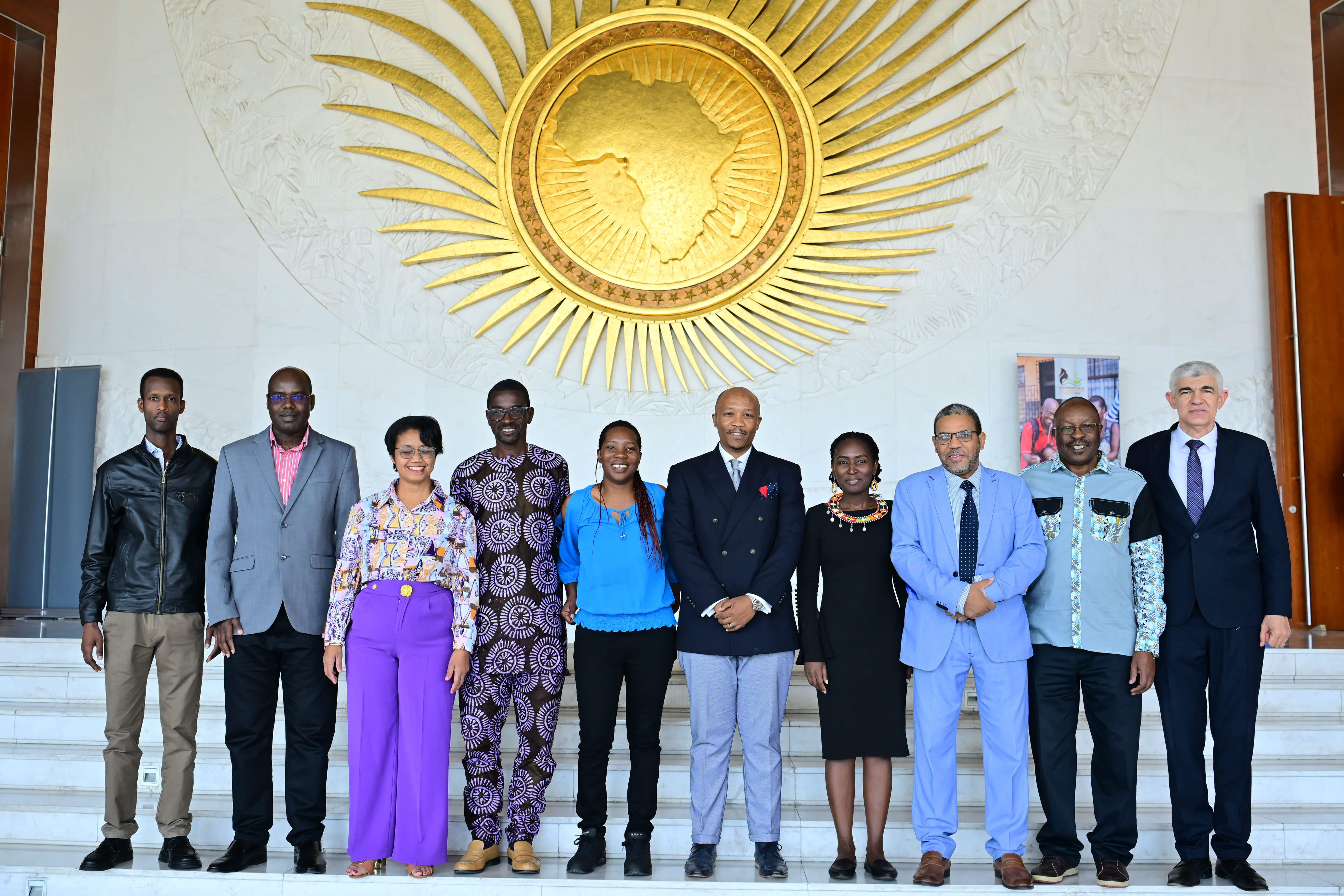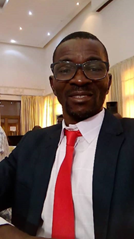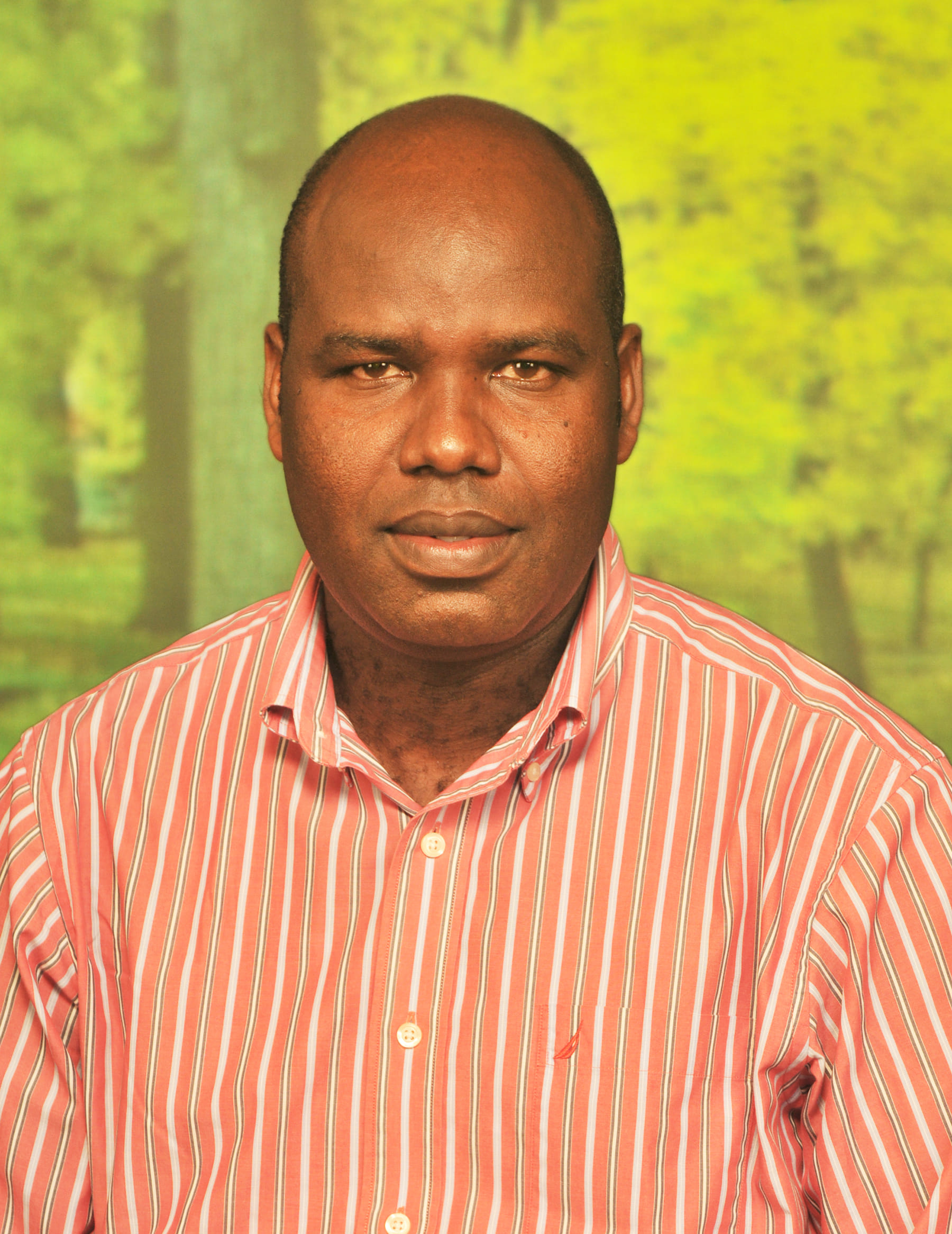
Dr. Emmanuel Sulle
Dr. Emmanuel Sulle
Sulle is an Assistant Professor and Director of the Aga Khan University’s Arusha Climate and Environmental Research Centre, in Tanzania. He is well-known as a leading scholar on agrarian studies in Africa, a contributor to the Network of Excellence on Land Governance in Africa. He holds a PhD in Poverty, Land and Agrarian Studies from the University of the Western Cape, South Africa and Master’s degree in Public Policy majoring in Environmental Policy from the University of Maryland, United States.
Sulle has won various awards for his academic excellence including Harvard University Doctoral Student Fellowship and the Council for the Development of Social Science Research in Africa (CODESRIA) Doctoral Grant. He currently holds a Global Faculty position at the University of Cologne, Germany and Adjunct Professor Position at Simon Fraser University, Canada. Prior to joining AKU Sulle worked at PLAAS (UWC), where he led diverse groups of researchers on numerous complex studies in various countries in Eastern, Southern, Western and Northern Africa.
His current research interests include climate change, sustainable agriculture and food systems, policy analysis, green economy, biodiversity and community-led conservation and tourism, land tenure and agrarian transformation in Africa.
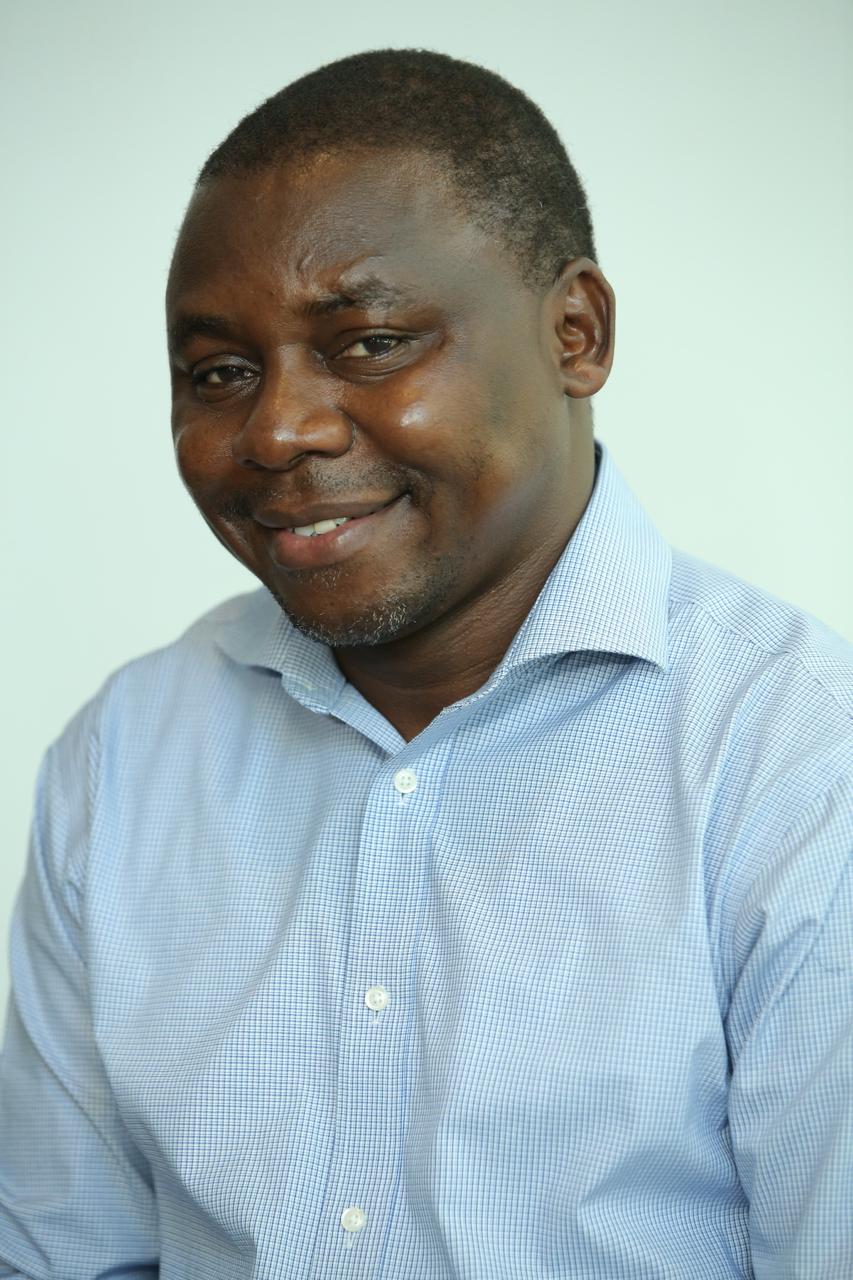
Dr. Milu Muyanga
Dr. Milu Muyanga
Dr. Milu Muyanga is a seasoned development economist with over two decades of experience in agricultural policy, land governance, and rural transformation in sub-Saharan Africa. He is an Associate Professor at Michigan State University and a founding member of the MwAPATA Institute in Malawi. His work focuses on evidence-based policy advisory, with extensive contributions to land policy reform, food systems resilience, and inclusive rural development.
Dr. Muyanga has led multi-country research and capacity-building initiatives across Nigeria, Kenya, Tanzania, Malawi, and Zambia, partnering with national governments, think tanks, and international development agencies. His work has directly informed national land policies, input subsidy reforms, and regional strategies addressing land tenure, agricultural commercialization, and sustainable natural resource use.
He has authored numerous peer-reviewed publications, policy briefs, and working papers on land dynamics, rural livelihoods, and input markets. His leadership in bridging research with policymaking, especially through embedded policy support programs, makes him a valuable contributor to the African Union’s agenda on land justice and reparations. Dr. Muyanga’s experience aligns strongly with CLPA’s mission to promote equitable land governance and inclusive development across Africa and the diaspora.
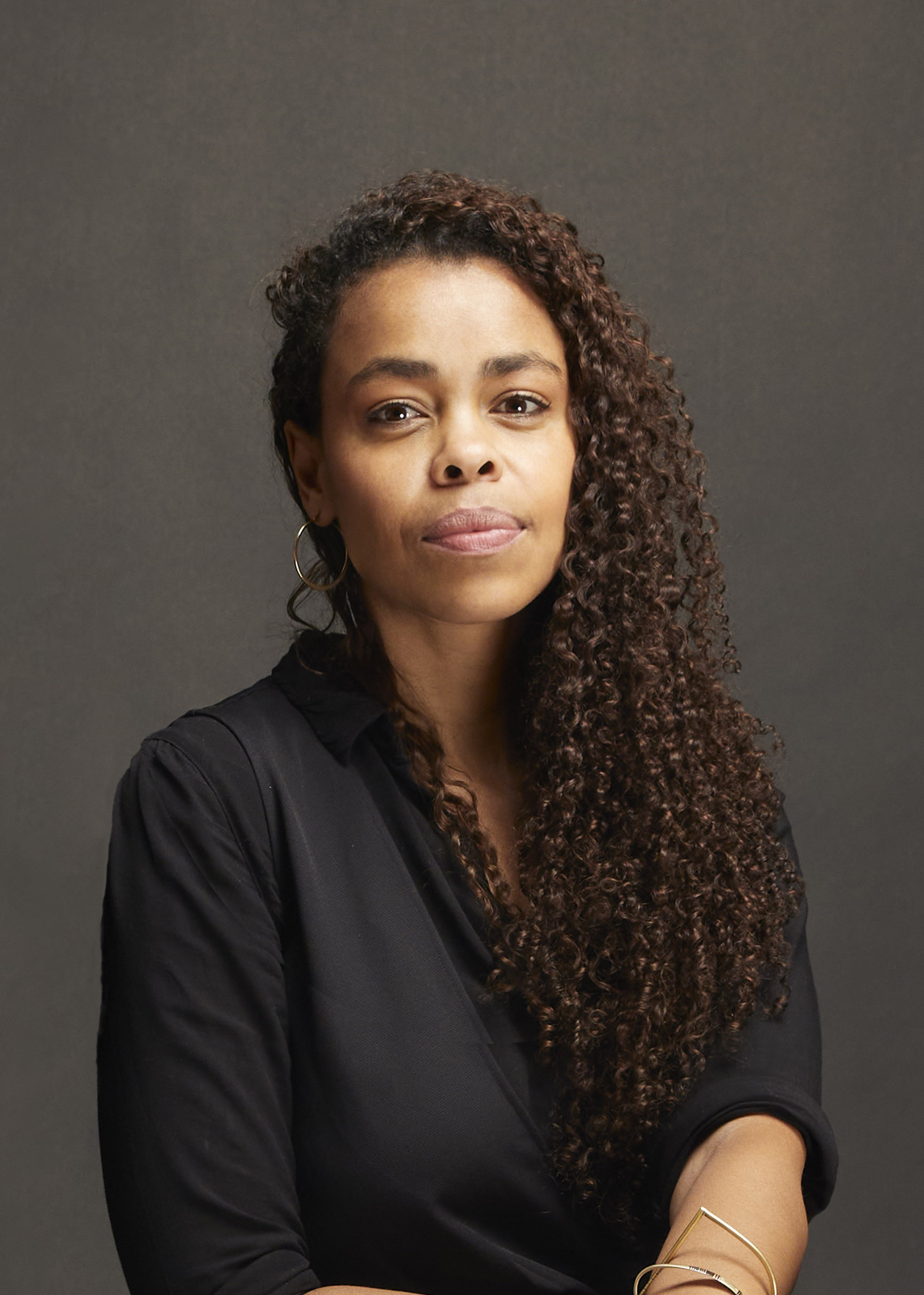
Molemo Moiloa
Molemo Moiloa
Molemo Moiloa lives and works in Johannesburg, and has worked in various capacities at the intersection of creative practice and community organizing. She currently works on notions of ungovernability, social infrastructures of cultural organizing, and relationships to nature. She is one half of the artist collaborative MADEYOULOOK, who explore everyday popular imaginaries and their modalities for knowledge production.
Molemo also co-leads the Open Restitution Africa project, an Africa-focused research platform for restitution of African heritage under the auspices of Andani.Africa. She also co-leads the ungovernable, an experiment in communitary practice and ungovernability.
Molemo is a Soros Arts Fellow 2023/24, was a Chevening Clore Fellow 2016/17, and winner of a Vita Basadi Award for 2017. MADEYOULOOK were selected artists of the South African Pavilion for the Venice Biennale 2024, were DAAD Artists-in-Berlin fellows for visual arts 2022 and Lumbung artists at documenta fifteen, 2022. They were nominees for the VLC Prize for Art and Politics 2016/17 at the New School, New York.
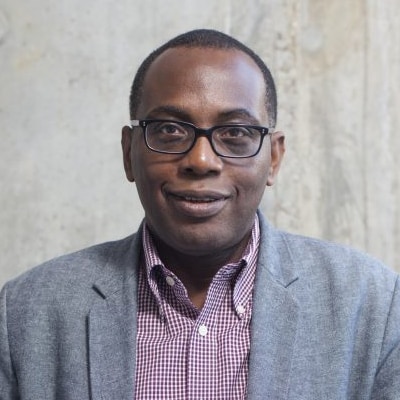
Onyekachi Wambu
Onyekachi Wambu
A former newspaper editor and television producer for the BBC and PBS, Onyekachi Wambu is currently the Director, Special Projects at AFFORD, a charity that seeks to enhance the contributions that Africans in the diaspora make to Africa’s development. AFFORD is a pioneer and innovator in the field of policy and practice of ‘diaspora-development’, responding to the disjuncture between mainstream international development and actual diaspora action. As the former Executive Director, AFFORD’s advocacy work under his leadership, has contributed to UK and international recognition of the role of the diaspora in African and international development, and in the subsequent initiation of new policies, programmes, funds and schemes by global institutions such as The European Union, The African Union, DFID, The World Bank, IOM, Comic Relief, GIZ, and SDC.
Since 1990 Onyekachi has taken a leadership role on issues of African cultural heritage, especially focusing on the impact of slavery and colonialism, advocating on these issues in the UK and Internationally. This includes founding African Remembrance Day in 1995, to commemorate the victims of slavery; and working with key institutions such as Museum of London, Docklands, British Library, and Manchester Metropolitan University. He has made high level presentations and recommendations on African cultural and heritage issues to the United Nations and African Union, in the context of the Decade of People of African Descent. He currently coordinates AFFORD’s Return of the Icons Programme for the restitution of human remains and looted African artefacts in Western cultural institutions. He provides leadership for AFFORD in its role as co-secretariat for the All-Party Parliamentary Group on Afrikan reparations.
Onyekachi was educated at the University of Essex and completed his M.Phil in International Relations at Selwyn College, Cambridge. He has written widely on Africa and her global diaspora. His publications include: Empire Windrush: 50 years of writing about black Britain (ed); Under the Tree of Talking: Leadership for Change in Africa (ed) and Empire Windrush: Reflections on 75 Years & More of the Black British Experience (ed).
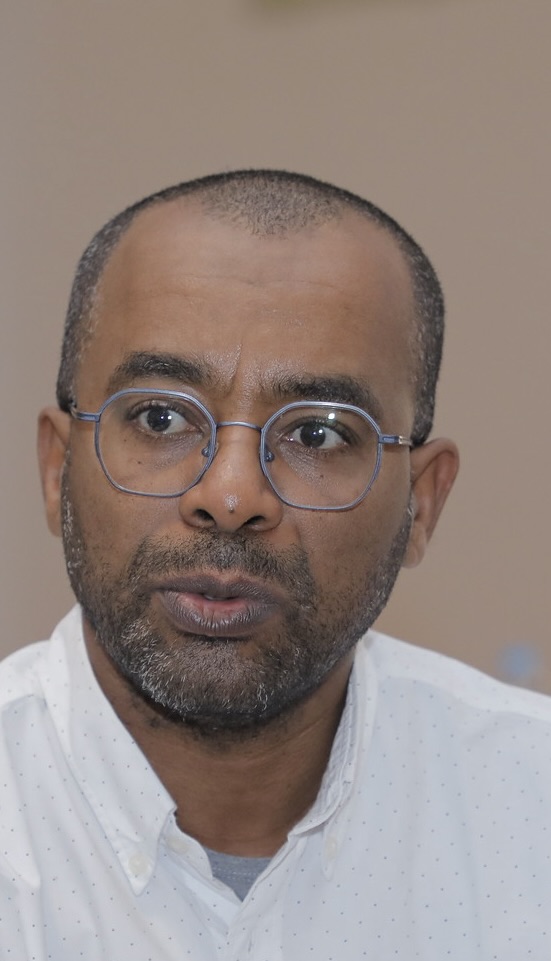
Saker El Nour
Saker El Nour
Saker El Nour is an independent rural sociologist, cofounder of the Action Network for a Just Transition in the Middle East and North Africa (RESEAU TANMO), Principal Investigator of Nubian Legacy: Chronicles of the 1933 Dislocation Archive (EAP1594), an Endangered Archives Programme project funded by the British Library, and a member of the Board of Trustees of the Arab Council for the Social Sciences (ACSS). His research focuses on political ecology, rural sociology, agro-environmental policies, and Nubian heritage, with particular attention to land, labor, food, and water in Egypt and the wider Arab region.
At the intersection of academic inquiry and public scholarship, El Nour’s work connects critical social science to debates on environmental justice, rural transformation, and resource governance. He has carried out extensive fieldwork in Egypt, Lebanon, Morocco, Sudan and Tunisia, combining ethnographic methods with agrarian political economy analysis, and actively contributes to regional and international research networks on climate change, food sovereignty, and environmental justice.
His books include:
- Land, Peasant, and Investor: A Study on the Agrarian and Peasantry Question in Egypt (2017),
- Mrahrah Bread: The Political Economy of Food Sovereignty in Egypt (2021, with Mohamed Ramadan),
- and People and Water in Egypt: A Political Ecology Perspective (2023, co-edited with Alya El Marakby).
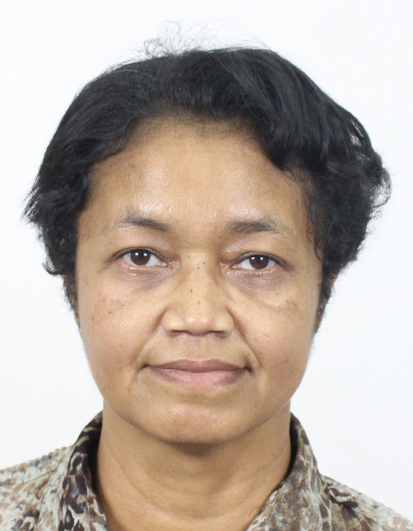
Mrs Nancy Rambao Andrianarisona ep. Andriamisandratsoa
Mrs Nancy Rambao Andrianarisoa ep. Andriamisandratsoa
Mrs Nancy Rambao Andriamisandratsoa is an Inspector of Domain and Land Property and an Expert in Public Administration from the National School of Administration of Madagascar (ENAM) and currently pursuing dual doctoral studies in Sociology and Interepistemic Sciences.
Her areas of expertise encompass Public Policy, Land Policy, Land Reform, Land Governance and Public Finance.
Her commitment to the betterment of land governance and land reform is underscored by her participation in workshops and the various capacity building she has provided.
She played an active role in drafting the Land Policy Letter in 2015 and in the development of Phase II of the National Land Program in 2024. She also contributed to the 10th anniversary of the Voluntary Guidelines on the Responsible Governance of Tenure of Land (VGGT) , the preparation of the Multisectoral Platform for Land Governance in Madagascar, and regional consultations on community land rights.
Alongside her academic and professional commitments she conducts training of students Inspectors of Domain and Land Property and students Engineers of Topographic Services on land policy in Madagascar. She has also provided capacity building for land actors and professionals on land reform.
She is a trainer in decentralized land management and certification processes to the Mayors, President of Communal Council and the responsible officers of communal land offices.

Eileen Wakesho Mwagae
Eileen Wakesho Mwagae
Eileen Wakesho Mwagae is a land and property rights practitioner with keen interest on women’s land rights. She currently serves as Namati’s advisor for the Community Land Protection Programme, a programme that seeks to strengthen land tenure rights for indigenous communities. Eileen previously served as Oxfam International women’s land rights Advisor, worked with Kenya Land Alliance, Development Policy Management Forum (DPMF) and Kenya Institute for Public Policy, Research and Analysis (KIPPRA) focusing on women land rights, land governance and land and conflicts.
She has co-authored a peer-reviewed book on informal justice mechanisms and formal courts in Kenya and Engagement with Local Communities: Land and Conflict. She holds a master’s degree from the University of Nairobi. She has published numerous articles on women’s rights to property and community land protection. She is alumni of Political economy on Land Governance in Africa progrmme, Landesa’s Women Land Rights Visiting Professionals Program in Seattle Washington, and Sydney’s Law School Gender and Transitional Justice Fellowship.
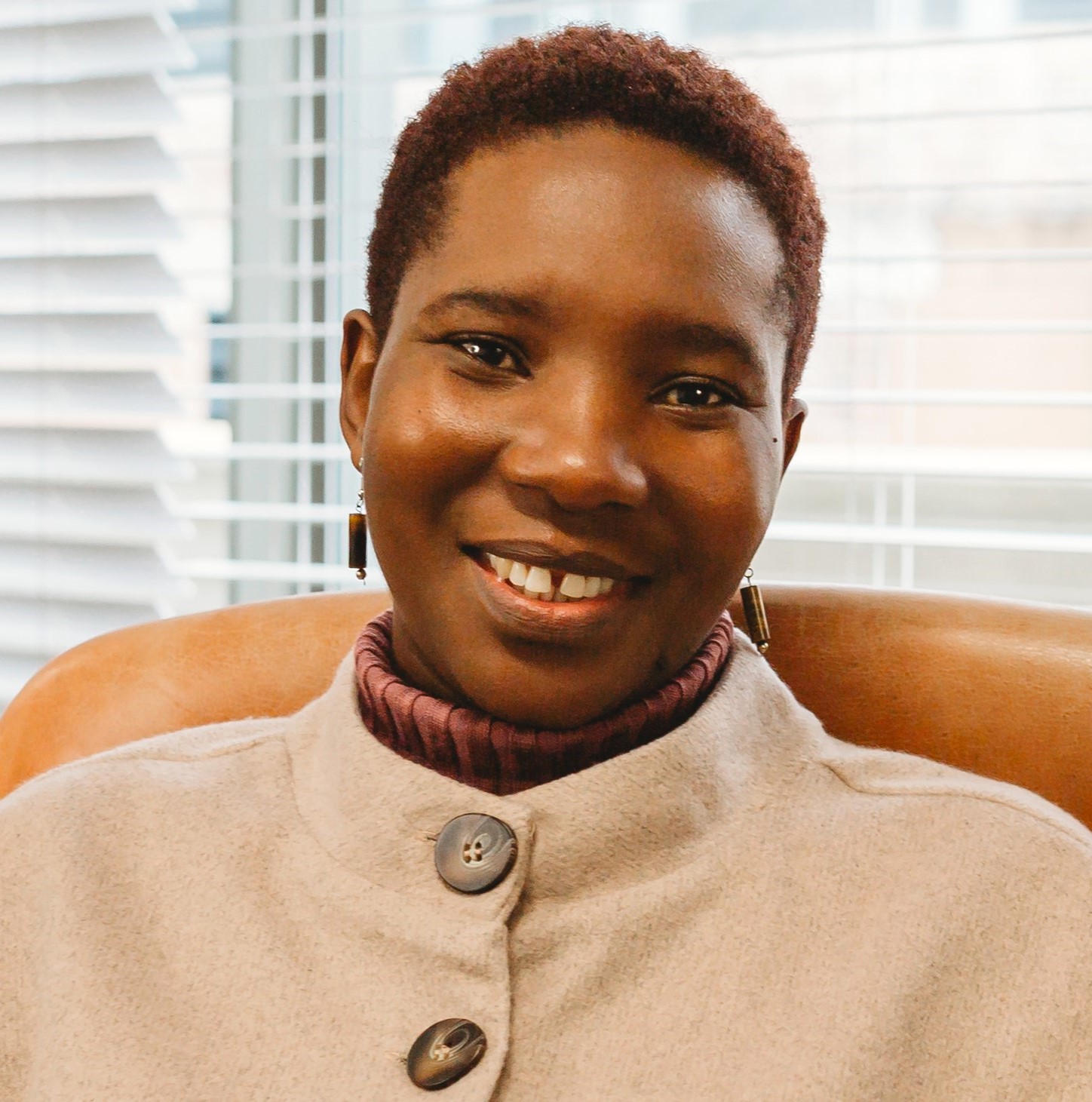
Dr. Elizabeth Musvoto
Dr. Elizabeth Musvoto
Dr. Elizabeth Musvoto is currently a Senior Lecturer in the Department of Construction Economics and Management at the University of Cape Town.
She is a Professional Town Planner and holds a Ph.D. in Property and Planning from the University of Cape Town, Master’s in Real Estate and Bachelor`s Degree in Town and Regional Planning both from the University of Pretoria.
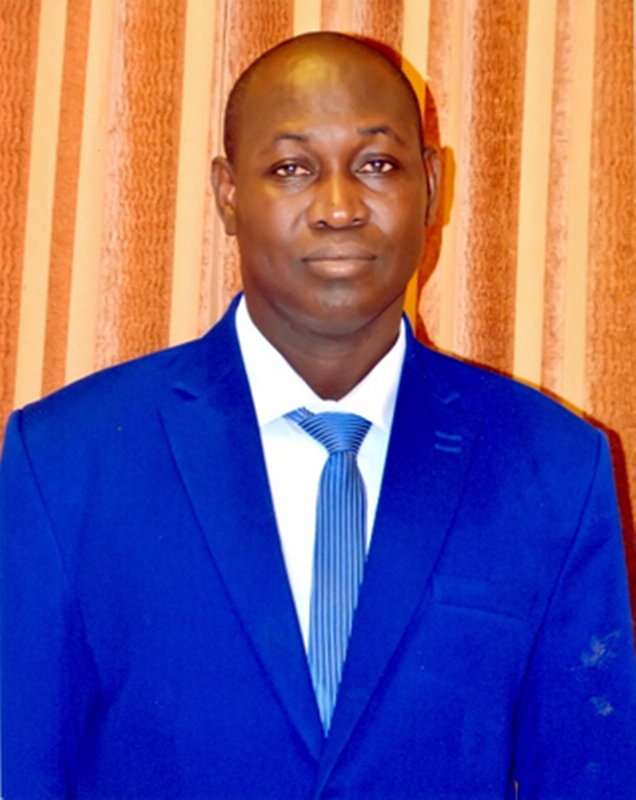
Dr Raguidissida Emile Zida
Dr Raguidissida Emile Zida
Le Docteur Raguidissida Emile ZIDA est actuellement le Chef de Division Culture de la Communauté économique des Etats de l’Afrique de l’Ouest (CEDEAO). Originaire du Burkina Faso, Docteur ZIDA a occupé plusieurs fonctions de haut rang dans le domaine de la culture et des industries culturelles dans son pays : Coordonnateur du Programme d’Appui au renforcement des Politiques et Industries culturelles (ARPIC) ; Coordonnateur de la pépinière des entreprises culturelles du Programme d’Appui au réseau ouest-africain de pépinières d’entreprises de la filière Musique (ARPEM). Du point de vue académique, Docteur ZIDA est titulaire d’un Doctorat en Sciences de l’Information et de la Communication de l’Université Grenoble Alpes en France, où il s’est intéressé au sujet des « Industries culturelles dans les pays francophones d’Afrique subsaharienne : cas du Burkina Faso). Il est aussi titulaire d’un Master en Développement de l’Université Senghor d’Alexandrie en Egypte, dans la spécialité Management de la Culture et des médias ; d’une Maîtrise en arts du spectacle de l’Université de Ouagadougou. Il est diplômé de l’Université Jean Moulin Lyon 3 en Sciences Politiques et Relations internationales.
Depuis sa prise de fonction, sous son égide technique, la Commission de la CEDEAO a adopté sa première Politique culturelle régionale en 2019 ; en même que le Plan d’action 2019-2023 de la CEDEAO sur le retour des biens culturels africains à leurs pays d’origine. Il est à l’origine de plusieurs projets originaux pour la CEDEAO dont le Prix d’Excellence de la CEDEAO, le Forum sur l’éducation à la culture de la paix à travers le dialogue intra et interreligieux, le Programme d’immersion des jeunes gradués dans les Institutions de la CEDEAO, le projet du Festival ouest-africain des arts et de la culture…
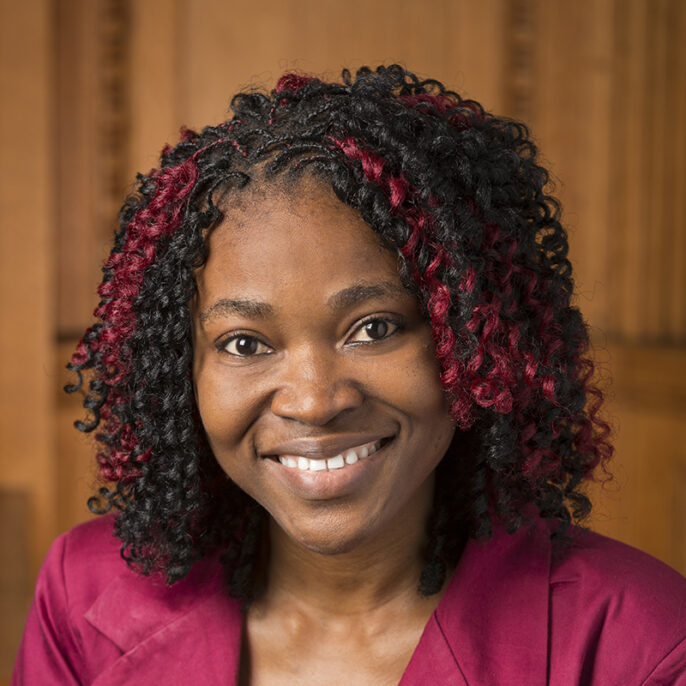
Prof Melvis Ndiloseh
Prof Melvis Ndiloseh
Prof. Melvis Ndiloseh is an Associate Professor of international studies. She has over twelve years of experience in teaching, research/consulting, policy analysis/advisory and programme management with International and research institutions like The Carter Center, IIDEA, AU, UN, SIPRI, OSIWA, Social Impact, and others. Her areas of specialization are democratic governance, human rights, transitional justice, peace and security. She was a 2017 Yale World Fellow and holds a PhD in Politics, Human Rights and Sustainability.
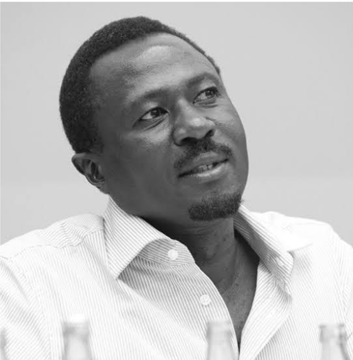
Prof. George Abungu
Prof. George Abungu
Prof. George Henry Okello Abungu is a Cambridge-trained archaeologist and Emeritus Director-General of the National Museums of Kenya. He is the founding Chairman of Africa 2009, ISCOTIA (the International Standing Committee on the Traffic in Illicit Antiquities), and CHDA, the Centre for Heritage Development in Africa He is a recipient of the “Ife Prize in Museology” 2007, Congo Brazzaville; Distinction of “Passeur du Patrimone by Ecole du Patrimoine Africain 2009 Benin Republic; Lifetime Achievement in Defense of Art 2012, ARCA Italy and USA; Chevalier de l’Order de Arts et des Lettres 2012 the Republic of France; African World Heritage Fund Award 2016, AWHF, South Africa; and Ordre National Du Lion Chevalier, 2018 the Republic of Senegal. He has numerous publications in the disciplines of archaeology, heritage management, museology, culture and development, heritage and tourism, heritage and sustainable development, illicit trafficking in cultural property and restitution and has championed community participation and benefits from heritage, responsible tourism and the role of museums in nation building.
His latest publications include National Museums in Africa: reflection on memory, identity and the politics of heritage (2021) Routledge Publishing Company, UK, by Silverman, Raymond, Abungu G. H.O and Probst, Peter; “Restitution” in the Dictionary of Museology, (Ed) Francois Mairesse, Routledge (English) and Armand Colin (French) (2022); Victims or Victors: Universal Museums and the Debate on Return and Restitution, Africa’s Perspective in (Ed) Stevenson, Alice Oxford Encyclopaedia of Archaeological Museums Oxford University Press (2023) and The Heritage of the Colonized: Managing Heritage in Africa, Routledge Publishing Company, UK Abungu G.H.O and Ndoro W. (Ed) (2023)
He has been an advisor to the Aluka project of the Mellon Foundation USA, the Global Heritage Fund USA, Vice President of International Council of Museums (ICOM) Paris, France, and a Member of the International Jury of the UNESCO Melina Mecouri International Prize for Safeguard and Management of Cultural Landscapes and a member of the International Experts of the Humboldt Forum, Berlin, Germany. He is an international UNESCO Consultant and currently a Members of the UNESCO International Advisory Committee for the World Heritage of Uzbekistan.
He has sat on the World Monuments Watch panel of the World Monument Fund, New York and was Kenya’s Representative to the UNESCO World Heritage Committee, and Vice-President of its Bureau (2005-2009). He is a Fellow of the Stellenbosch Institute for Advanced Studies, University of Stellenbosch South Africa and was Elizabeth Eddy Professor of Applied Anthropology, University of Florida, Gainesville, USA. He is the founding Professor of Heritage Studies, at the University of Mauritius and also served as a Special Advisor to the Director General of ICCROM, Rome, Italy. He is Honorary Professor of Museums and Heritage Studies, Australian National University, Canberra, Australia.

Ombretta Tempra
Ombretta Tempra
Ombretta Tempra is the Chief of the Land, Housing and Shelter Section at UN-Habitat. She leads the Intergovernmental Open-Ended Working Group on Adequate Housing for All and oversees UN-Habitat's global housing portfolio. She also coordinates the Global Land Tool Network and the Arab Land Initiative. Ms Tempra has more than two decades of experience in international urban development, land governance, housing, slum upgrading, displacement solutions, and the advancement of women's empowerment in developing and crisis-affected contexts. Her previous roles include assignments with UN-Habitat's regional offices for Africa and the Arab States, its country offices in Liberia and Somalia, as well as positions within non-governmental organizations and the private sector.
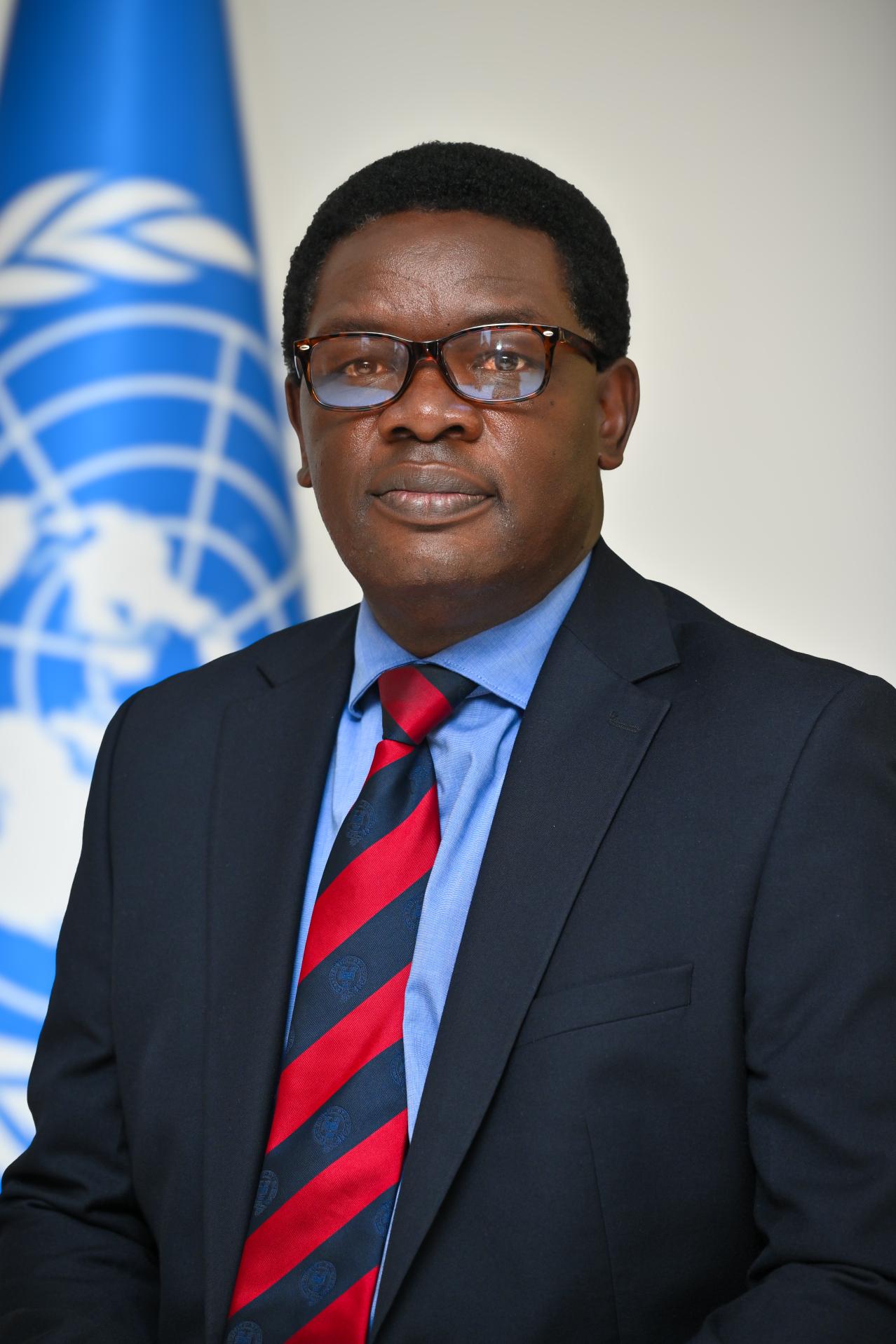
Dr. Cosmas Milton Obote Ochieng
Dr. Cosmas Milton Obote Ochieng
Dr. Cosmas Milton Obote Ochieng is the Director of the Climate Change, Food Security and Natural Resources Division at the UN Economic Commission for Africa. Before joining the UN Economic Commission for Africa, Dr. Ochieng served as the Global Director for the Center for Equitable Development at the World Resources Institute (WRI). Prior to that he served as Director of the African Natural Resources Centre at the African Development Bank (AfDB) in Abidjan.
A development and environment expert, Dr. Ochieng, has also held appointments with various universities, policy thinktanks and development institutions. These include as Associate Professor of the Practice of Global Development Policy at the Pardee School of Global Studies at Boston University (US), Lecturer in Sustainable Agriculture, Land and Water at Lancaster University (UK) and Executive Director of the African Centre for Technology Studies (ACTS) in Nairobi Kenya. Dr. Ochieng is also a former Technical Coordinator of the Business, Economics and Biodiversity program of IUCN’s Eastern and Southern regional office in Pretoria, South Africa and a Research Fellow with the International Food Policy Research Institute (IFPRI) in Addis Ababa, Ethiopia.
Dr. Ochieng holds graduate degrees in Development Studies from Oxford and Cambridge universities in the UK.
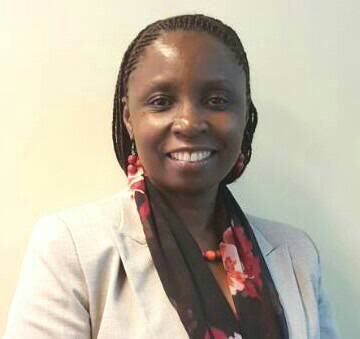
Dr. Joan Kagwanja
Dr. Joan Kagwanja
Dr. Joan Kagwanja is the Chief, Land and Agricultural Transformation Section (LATs) and Coordinator of the African Land Policy Center (ALPC), CFND, hECA. She has over 30 years experience in African development, having held positions at the ECA, The Alliance for a Green Revolution in Africa (AGRA), the International Livestock Research Institute (ILRI), among others.
As the Chief of LATs, Dr. Kagwanja has led in the development and implementation of programmes that generate knowledge, develop evidence based tools, promote advocacy and enhance capacity to transform african agriculture and food systems, leverage innovative climate smart solutions and digitalisation approaches, while enhancing the role of women, youth, and smallholders.
Dr. Kagwanja has led the ALPC since 2017 and its predecessor Land Policy Initiative (LPI) since 2006 contributing to a common AU agenda on land govenance in Africa, and commitments and tools to: strenghten women's land rights; engage in responsible land based investments; address land and ethnicity based conflicts; improve efficacy and transparency in land administration; and build capacity through improved curricula, training and research for land govenance reforms.
Dr. Kagwanja holds a PhD in Agricultural Economics from the University of Missouri- Columbia, USA.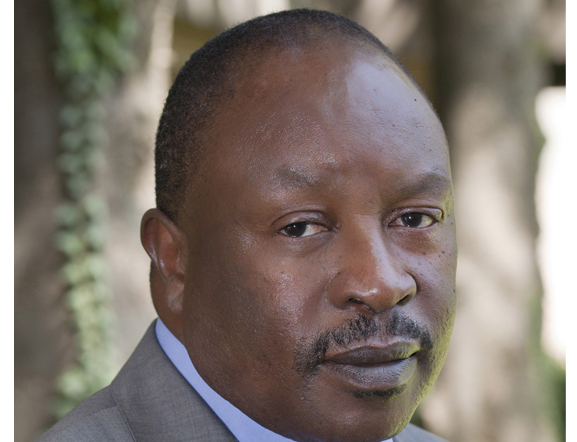
Prof. Kimani Njogu
Prof. Kimani Njogu
Kimani Njogu is the Director of Twaweza Communications and has experience of over 30 years in university teaching, public policy development, research, and publishing. He has supported the coordination of the Conference on Land Policy in Africa for a decade and contributed in the development of key ALPC knowledge products including the Guidelines for the Development of Curricula on Land Governance in Africa, a research report on Land, Ethnicity and Conflicts in Africa and Guidelines on Prevention and Addressing Land-Based Conflicts in Africa.
In 2024, he worked with Professor Gregory Stanton to write the Preventing Ethnic Genocide: Policy Guidance Note which was commissioned and supported by the United Nations Office of the Special Adviser on Prevention of Genocide (OSAPG).
Prof. Kimani serves as Culture Expert at Kenya National Commission for UNESCO (KNATCOM) and has received national recognition for his contribution to education, culture and creativity.
He holds a Ph.D. in Linguistics from Yale University, USA.
